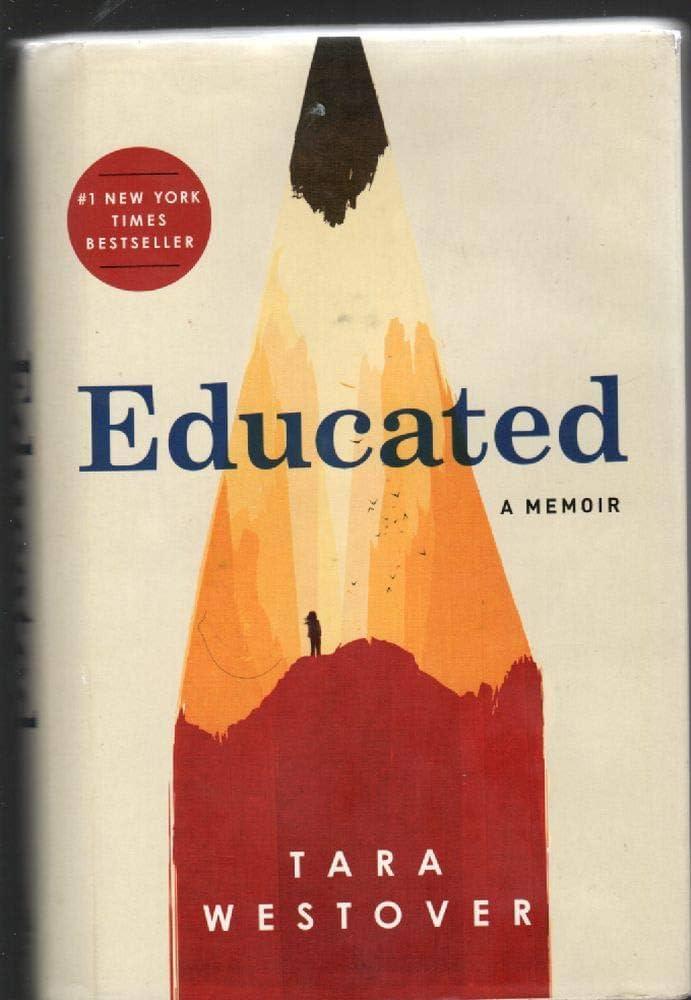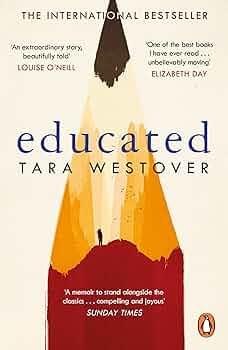Tara Westover‘s memoir, Educated, stands as a compelling testament to the transformative power of education and self-discovery. In this analytical exploration, we delve into the narrative techniques and thematic intricacies that make Westover’s memoir not only a personal recounting of her journey from a survivalist upbringing in rural Idaho to the halls of Cambridge University, but also a universal story of resilience and identity. By examining the memoir’s structure, use of language, and the interplay between memory and reality, this article seeks to uncover how Westover crafts a narrative that resonates with readers on both an emotional and intellectual level. Through an impartial lens, we will explore how Educated transcends the confines of a traditional memoir to challenge and inspire its audience, inviting them to reflect on the broader implications of education and the quest for self-empowerment.
Exploring the Impact of Personal Narrative in Educated
The memoir “Educated” by Tara Westover serves as a compelling case study in the transformative power of personal narrative. Westover’s journey from an isolated childhood in rural Idaho to earning a Ph.D. from Cambridge University is not merely a tale of academic achievement but a profound exploration of identity and self-discovery. Through her vivid storytelling, Westover highlights the intricate dynamics of family loyalty, the quest for self-education, and the struggle for autonomy. Her narrative offers insights into how personal experiences can shape one’s worldview and underscore the resilience of the human spirit.
- Family Dynamics: Westover’s portrayal of her family offers a window into the complexities of familial bonds and the tension between loyalty and self-preservation.
- Self-Education: Her relentless pursuit of knowledge despite her unconventional upbringing challenges traditional notions of education and underscores its transformative potential.
- Identity and Autonomy: The memoir delves into Westover’s internal conflict as she navigates her identity, highlighting the struggle to reconcile her past with her aspirations.
In essence, “Educated” is a testament to the enduring impact of personal narrative, demonstrating how individual stories can resonate on a universal level, offering both personal and collective insights into the human condition.

Analyzing the Role of Memory and Truth in Tara Westovers Memoir
In Tara Westover’s memoir, the intricate dance between memory and truth plays a pivotal role in shaping the narrative. Westover’s recollections serve as both a personal archive and a reflection on the subjective nature of memory itself. As readers, we are invited to explore the layers of her experiences, understanding that memory is not a static repository but a dynamic process influenced by time, emotion, and perspective. This fluidity challenges the notion of an absolute truth, prompting us to consider how personal narratives are constructed and reconstructed over time. The memoir’s strength lies in its ability to embrace the complexities of memory, allowing readers to witness Westover’s journey through a lens that acknowledges both the reliability and the fallibility of her recollections.
- Subjectivity of Memory: Westover’s narrative highlights how memories can be selectively remembered or forgotten, shaped by personal biases and emotions.
- Reconciliation with Truth: The memoir explores the tension between the author’s personal truths and the factual accuracy of events, prompting a dialogue on the nature of reality.
- Emotional Resonance: The emotive power of Westover’s memories underscores the idea that truth in memoirs is often more about emotional honesty than factual precision.

The Art of Balancing Vulnerability and Strength in Memoir Writing
In Tara Westover’s memoir, “Educated,” the delicate interplay between vulnerability and strength is masterfully crafted, creating a narrative that is both profoundly personal and universally resonant. Westover invites readers into the most intimate corners of her life, sharing experiences that range from the harrowing to the hopeful. Her willingness to expose her raw truths is balanced by a resilient spirit that underscores her journey from a secluded upbringing in rural Idaho to earning a Ph.D. from Cambridge University. This balance is not just a narrative choice but a thematic necessity, allowing readers to connect deeply with her story while witnessing the transformative power of education and self-discovery.
- Authenticity: Westover’s candid portrayal of her family dynamics and personal struggles grounds her narrative in a reality that many can relate to, yet few would dare to disclose.
- Resilience: The strength she exhibits in overcoming significant obstacles—both emotional and physical—serves as a testament to human endurance and the pursuit of knowledge.
- Reflection: By intertwining her past with present insights, Westover offers a reflective lens that enriches the reader’s understanding of growth and change.
These elements collectively create a memoir that is not only a recounting of events but also a profound exploration of identity and empowerment. Through “Educated,” Westover demonstrates that true strength lies not in the absence of vulnerability but in the courage to embrace it.

Recommendations for Crafting Authentic and Engaging Memoirs
In crafting memoirs that resonate deeply with readers, like Tara Westover’s “Educated,” it is crucial to balance authenticity with narrative engagement. An effective memoir requires more than just recounting life events; it demands a reflective approach that allows readers to connect emotionally with the author’s journey. Here are some recommendations to achieve this:
- Embrace Vulnerability: Authenticity stems from the willingness to expose one’s vulnerabilities. Sharing personal struggles and triumphs candidly can create a powerful emotional connection with readers.
- Find a Unique Voice: A distinctive voice can set a memoir apart. Whether it’s through humor, introspection, or raw honesty, the tone should reflect the author’s personality and perspective.
- Structure with Purpose: Thoughtful organization of events can enhance the narrative flow. Consider thematic or chronological structures that best highlight the memoir’s core message.
- Include Vivid Details: Rich, sensory details can transport readers into the author’s world, making the experiences more tangible and relatable.
- Reflect on Growth: Highlighting personal growth and transformation can provide readers with insights and inspiration, making the memoir not only a story but a journey of self-discovery.
By incorporating these elements, writers can craft memoirs that not only tell their story but also resonate on a deeper level with their audience, much like Westover’s compelling narrative in “Educated.”
